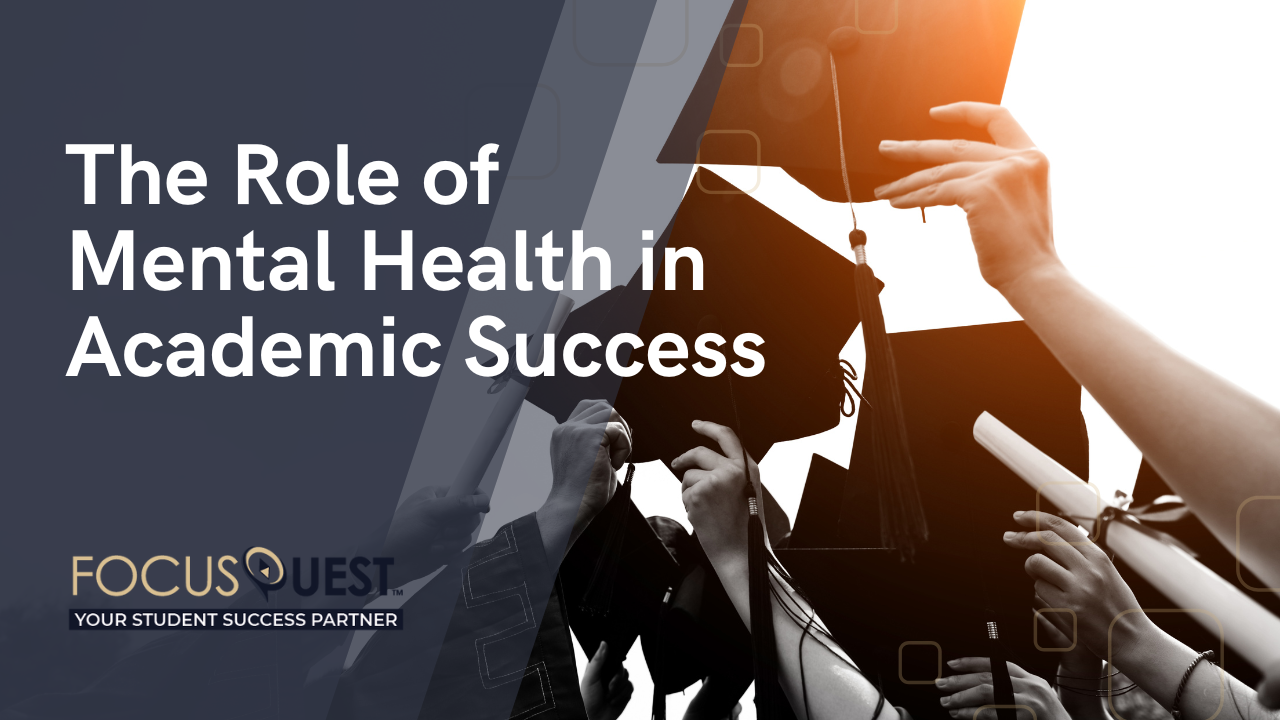How College Can Affect Our Mental Health
- November 1, 2024
As you prepare to embark on your college journey or continue your academic pursuits at a Historically Black College or University (HBCU), it’s essential to recognize how this experience can impact your mental health. The transition to college is an exciting time filled with new opportunities, challenges, and personal growth, but it also comes with stressors that can affect your emotional and mental well-being. Understanding the potential mental health challenges you may face, and knowing how to address them, is key to thriving during your time in college.

Mental Health and Academic Pressures
College life brings a significant increase in academic expectations, which can sometimes lead to overwhelming stress. Students often feel pressure to perform well academically, balance coursework, extracurricular activities, and manage personal responsibilities. This is especially true for students attending HBCUs, where there is a rich legacy of academic excellence, cultural pride, and community. The desire to meet these high expectations, while navigating the challenges of being a young adult, can increase feelings of anxiety and self-doubt.
A 2023 study by the Centers for Disease Control and Prevention (CDC) indicated that mental health issues are widespread among young people in the U.S. Although the report focuses on adolescents, the findings are relevant to college students as well. The study highlighted that more than 50% of teenage girls reported experiencing persistent feelings of sadness or hopelessness. While the study showed slight improvements in mental health between 2021 and 2023, it revealed that many young people continue to struggle with emotional distress, and this extends into college life.
Social Pressures and Isolation
In addition to academic stress, the social environment of college can also impact your mental health. College often means leaving behind familiar support systems, such as family and close friends, which can lead to feelings of loneliness or isolation. For African American students, particularly those attending HBCUs, the sense of community and belonging is often a source of strength, but it can also be challenging to navigate new social dynamics, cultural expectations, and relationships in college.
It’s not uncommon for students to feel socially disconnected during their first year, especially when adjusting to a new campus environment. Homesickness, the pressure to fit in, or even experiences of racial or cultural microaggressions can contribute to feelings of isolation. According to mental health professionals, building a supportive network early on—whether through student organizations, peer groups, or campus counseling services—can significantly alleviate these feelings and improve overall well-being.
Mental Health Challenges Among African American Students
African American students, particularly those attending HBCUs, face unique mental health challenges. Historically, the stigma surrounding mental health within Black communities has discouraged many from seeking help, even when they’re experiencing severe stress or depression. This cultural stigma, combined with systemic barriers to accessing mental health care, means that many Black students may struggle in silence.
The CDC report underscores the importance of paying attention to mental health, noting that even though there has been a slight improvement in the mental health of adolescents, over half still report persistent feelings of sadness or hopelessness. Moreover, students who identify as LGBTQ face even higher rates of emotional distress and suicidal thoughts, indicating the need for targeted support for minority students.
HBCUs are uniquely positioned to provide culturally competent mental health care, with many campuses offering counseling services tailored to the needs of African American students. Taking advantage of these services, whether through individual counseling or support groups, can make a significant difference in managing stress and maintaining mental well-being.
Strategies for Managing College Stress
To help manage the stresses of college life and safeguard your mental health, consider adopting some key strategies:
Seek Support Early: Don’t wait until you feel overwhelmed to seek help. HBCUs often provide access to mental health professionals who are culturally attuned to the needs of their students. Utilize campus counseling services, talk to your Student Success Coach, and seek out peer support groups.
Balance Your Schedule: College life is busy, but it’s crucial to create a balanced schedule that includes time for self-care. This might mean setting aside time for relaxation, exercise, or hobbies that bring you joy and help reduce stress.
Build a Strong Support Network: Whether it’s joining student organizations, getting involved in campus activities, or forming study groups, finding a supportive community can help combat feelings of isolation and foster a sense of belonging.
Challenge the Stigma: Don’t let the stigma around mental health prevent you from seeking help. Mental health is just as important as physical health, and there’s no shame in seeking support when you need it.
Stay Informed: Be aware of the signs of mental health issues, such as persistent sadness, changes in sleep or eating patterns, or feelings of hopelessness. Recognizing these signs early can help you take action before the situation worsens.
The Road Ahead
While the CDC’s data offers a glimpse of hope with slight improvements in adolescent mental health, the journey to addressing these issues remains long. At HBCUs, there is a unique opportunity to foster an environment where mental health is prioritized, and students are supported in every aspect of their academic and personal lives.
FocusQuest aims to be part of this solution by pairing every student with a Student Success Coach who is committed to helping them succeed from application to graduation. Remember, you are not alone in this journey. With the right resources and support, you can overcome the mental health challenges that college may present and emerge stronger, both academically and personally.
#MentalHealthMatters #CollegeMentalHealth #HBCUStrong #BlackMentalHealth #StudentWellness #MentalHealthAwareness #SelfCareInCollege #AcademicSuccess #OvercomingAnxiety #HBCUCommunity #SupportBlackStudents #MentalHealthSupport #ThrivingInCollege #LGBTQMentalHealth #BreakingTheStigma
Share on Social Media
facts corner
Featured Articles
-
The Divine Nine: History of Black Sororities and Fraternities
-
James M. Jeter '13 Makes History as Ralph Lauren’s First Black Creative Director
-
The Surge in HBCU Enrollments: Why More Students Are Choosing HBCUs
-
Relearning How to Learn: What School Never Taught Us About Studying
-
The Role of Mental Health in Academic Success
-
The Power of Peer Support: Finding Your Study Tribe






















